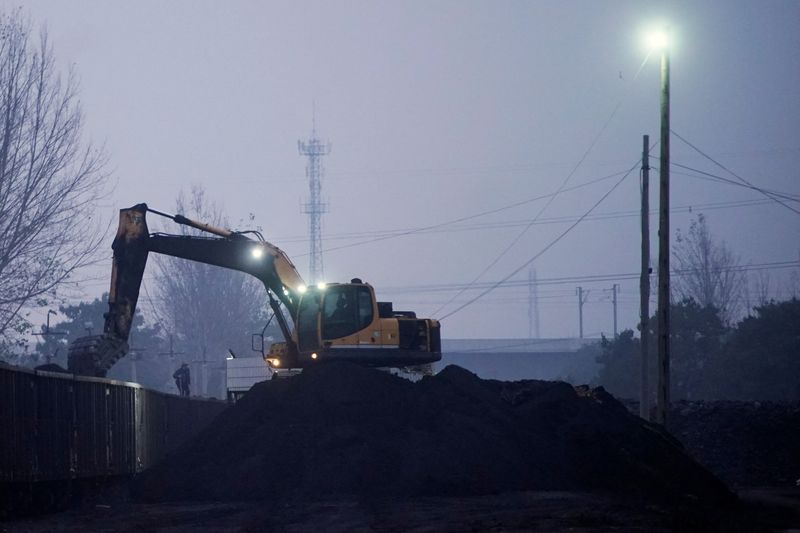By Leika Kihara
NUSA DUA, Indonesia (Reuters) - Asia must phase out coal power gradually while still making use of existing infrastructure to make the shift to a carbon-neutral society less disruptive, Seiji Izumisawa, president of Japan's Mitsubishi Heavy Industries, told Reuters on Monday.
Efforts to stave off disastrous climate change by a shift to renewable energy have been hampered by a global energy crisis and soaring fuel prices, as Russia sharply cut natural gas deliveries to Europe following its Feb. 24 invasion of Ukraine.
Business leaders and policymakers of the Group of 20 (G20) major economies are converging on a view that relying solely on renewable energy may not work, Izumisawa said in an interview.
"Previously, the discussion was binary in which you had to choose between renewable energy or existing technology. Now, it's moving toward how to get the best mix of both," said Izumisawa, who co-chaired a task force on energy policy at the B20 meeting of business executives from G20 economies.
The B20 forum met in Bali, Indonesia, on the sidelines of the G20 summit to present its policy proposals to the leaders.
A "realistic" mix of renewable energy and greener existing infrastructure is needed to help Asia's emerging economies meet a power consumption boom in coming years, Izumisawa said.
Asia may eventually wean itself off coal-fired plants "but the question is timing," Izumisawa said on calls from the global community for the region to phase out use of the fossil fuel.
"You have to think not just about renewable energy, but how to make better use of resources like coal and LNG," he said.
Shifting to liquefied natural gas (LNG) turbines, or usage of ammonia as a fuel at coal-fired power plants, may be the near-term solution for Asian nations still relying on coal, and also where the business opportunities are, said Izumisawa.
Asia has been slow in embracing the tough definition used by Europe for labelling projects climate friendly as the region's emerging economies heavily rely on coal and other fossil fuels, and struggle to fund the transition to more expensive renewable energy.
Japan, the world's fifth-biggest CO2 emitter, has also called for more focus on promoting the transition of existing fuel plants to greener energy resources.

Indonesia is the world's fourth-most populous country and eighth-biggest emitter of greenhouse gases, with coal making up about 65% of its total energy mix. The Southeast Asian nation, this year's G20 host, is also the world's biggest coal exporter.
Indonesia, the Asian Development Bank and a private power firm said on Monday they are teaming up to refinance and retire a coal-fired power plant, the first such project under an initiative to use private funding and public finance to phase out coal power facilities in Southeast Asia.